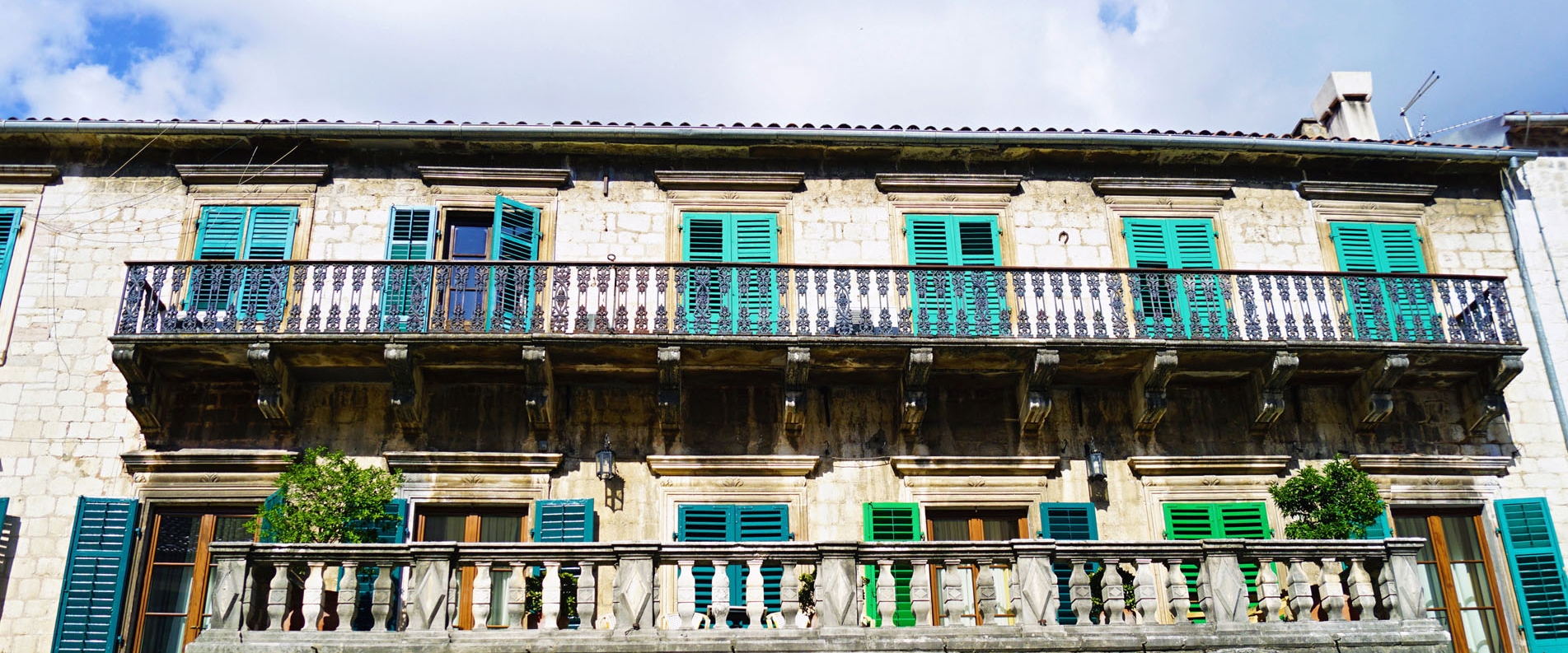Medieval Kotor is known for big number of well-preserved old buildings. Especially noteworthy are the houses of noble families, which are called mansions or palaces.
One of the most beautiful is the house of the Pima family. It is a mix of the best features of the Renaissance and Baroque architectural styles.
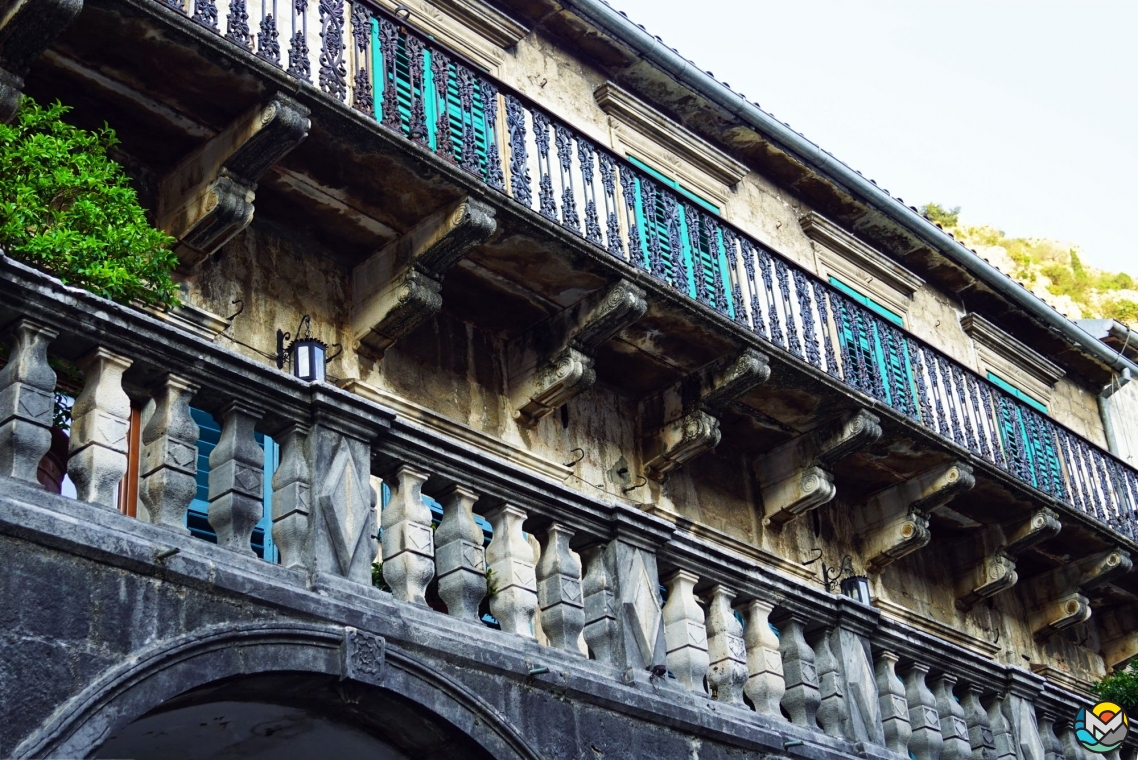
The palace stands on the eastern side of Trg od Brasna — Square of Flour — not far from the main city gate. It was built in the 17th century after a massive earthquake and is now a museum.
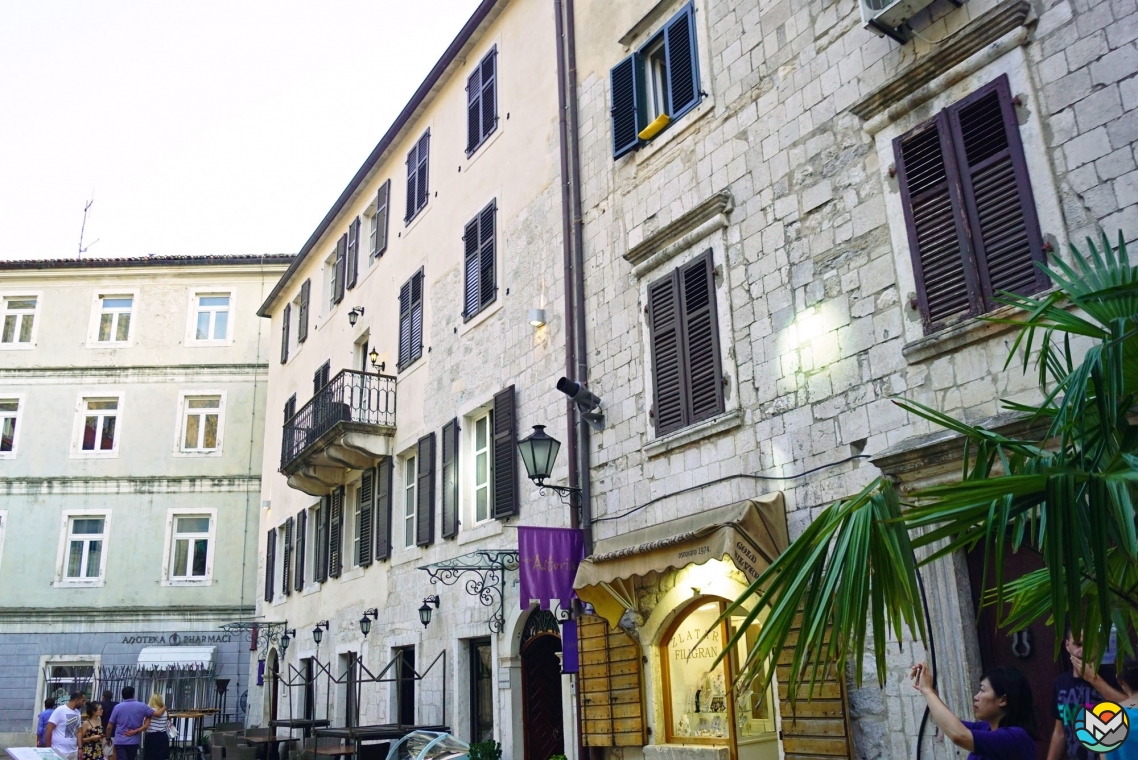
Opposite the Pima mansion rises the Bucha Palace. It is more impressive in size, but the decor is not that splendid.
Nevertheless, the Bucha Palace has a significant historical value and a respectable age, it dates from the late 13th – early 14th centuries.
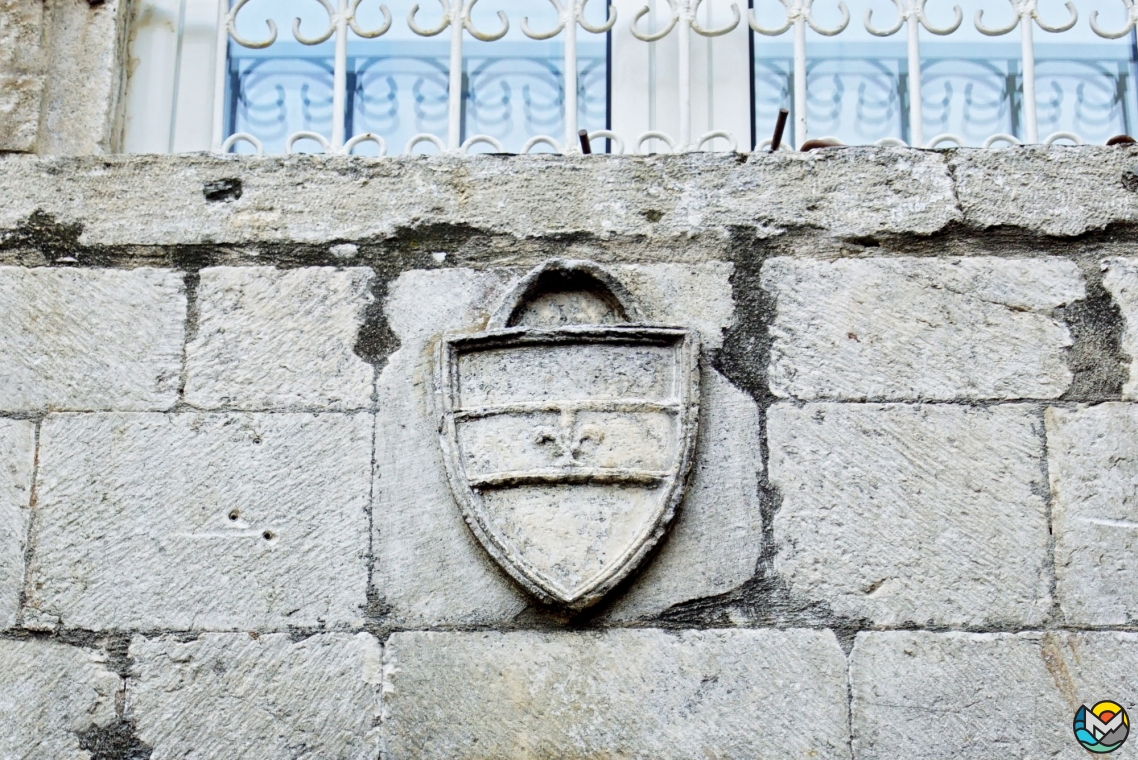
Opposite the Pima mansion rises the Bucha Palace. It is more impressive in size, but the decor is not that splendid.
Nevertheless, the Bucha Palace has a significant historical value and a respectable age, it dates from the late 13th – early 14th centuries.
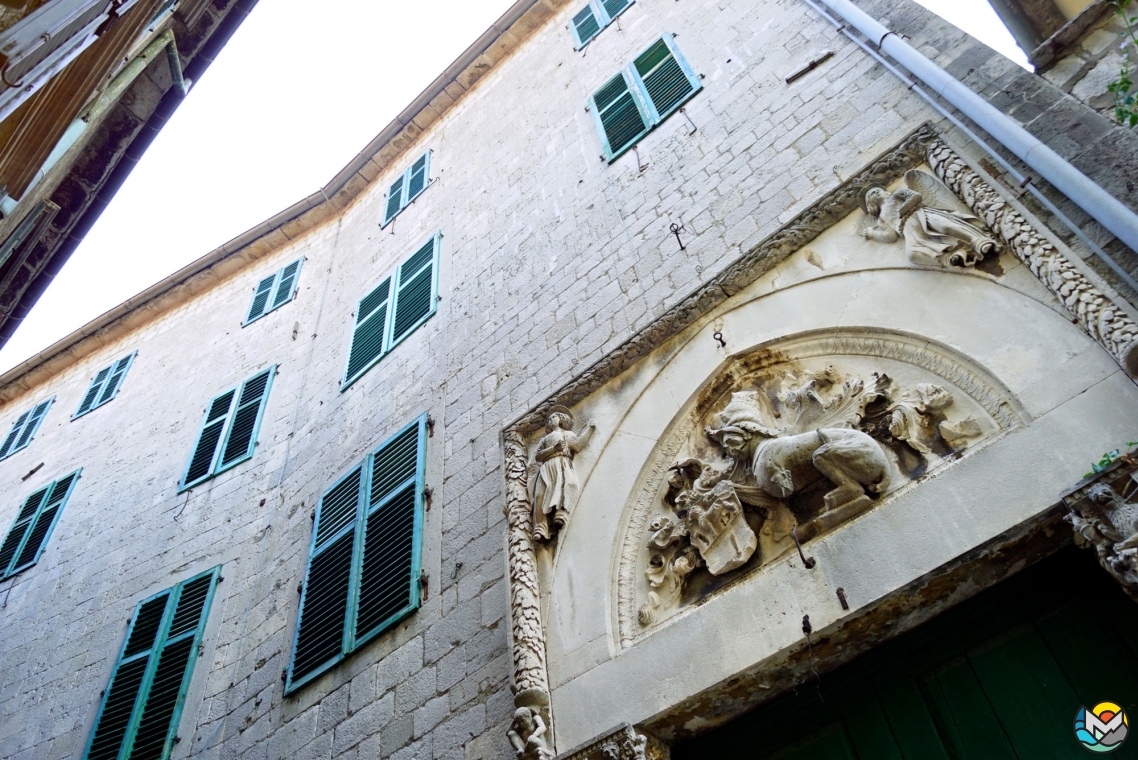
The Beskuca family mansion is right next to the Bucha palace. The Beskuca house was constructed in the 15th – 18th centuries.
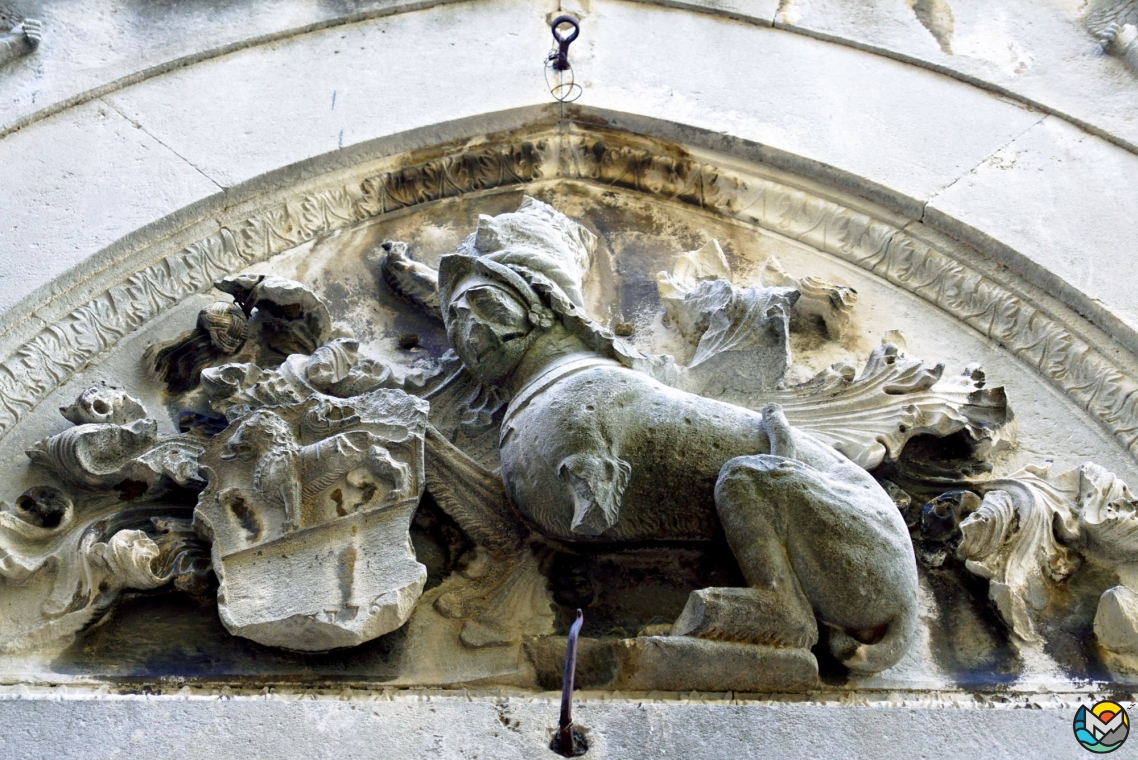
Its portal is decorated with a huge luxurious coat of arms. It is one of the most beautiful Gothic reliefs not only in Kotor, but throughout Montenegro. It is curious that this coat of arms actually does not belong to the Beskuca family, whose name the palace bears, but to another rich and influential family — Bizanti.
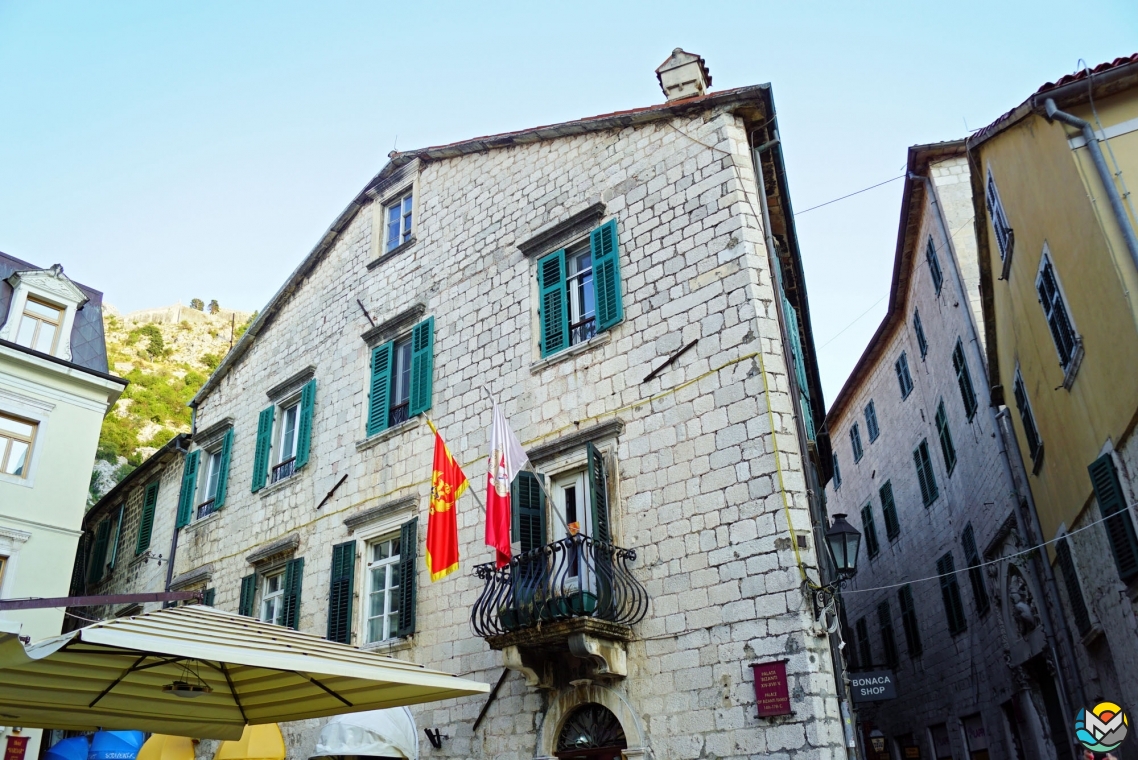
The Bizanti ancestral home is just opposite the Beskuca palace. It was built in the 14th century, but of course some changes were later made to its architecture.
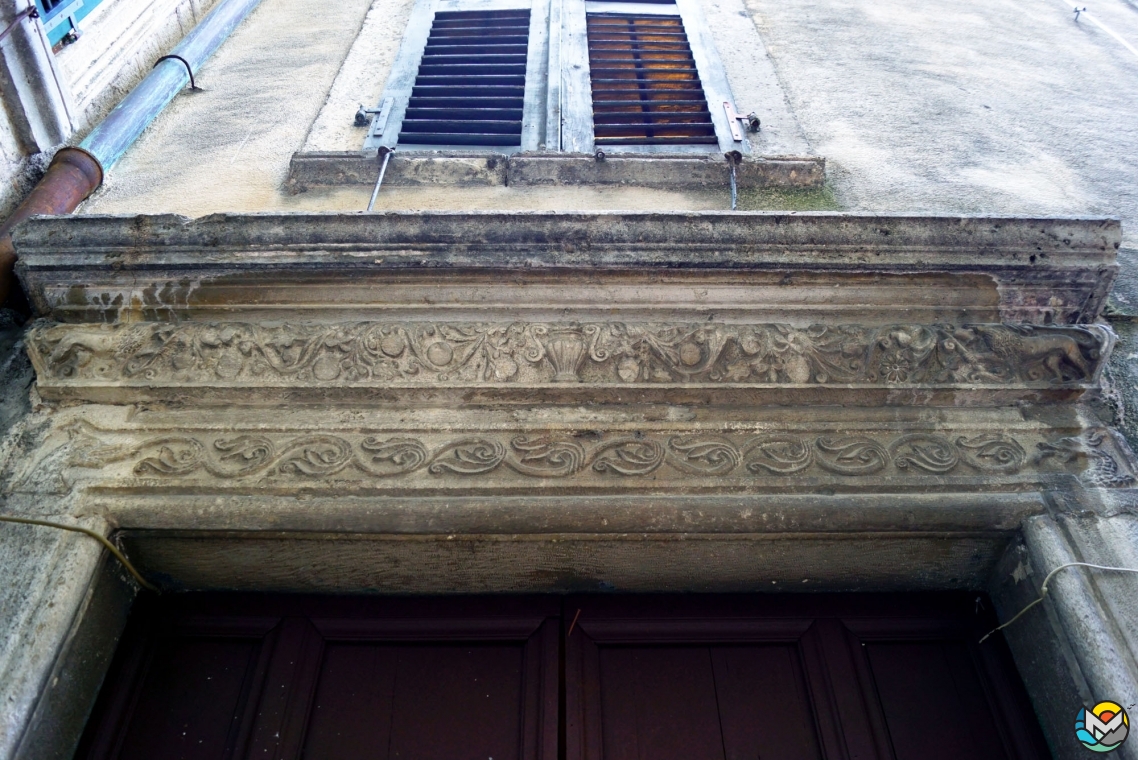
So now the Bizanti palace features several artistic styles at once, but the exterior is decorated mostly in ornate Baroque.
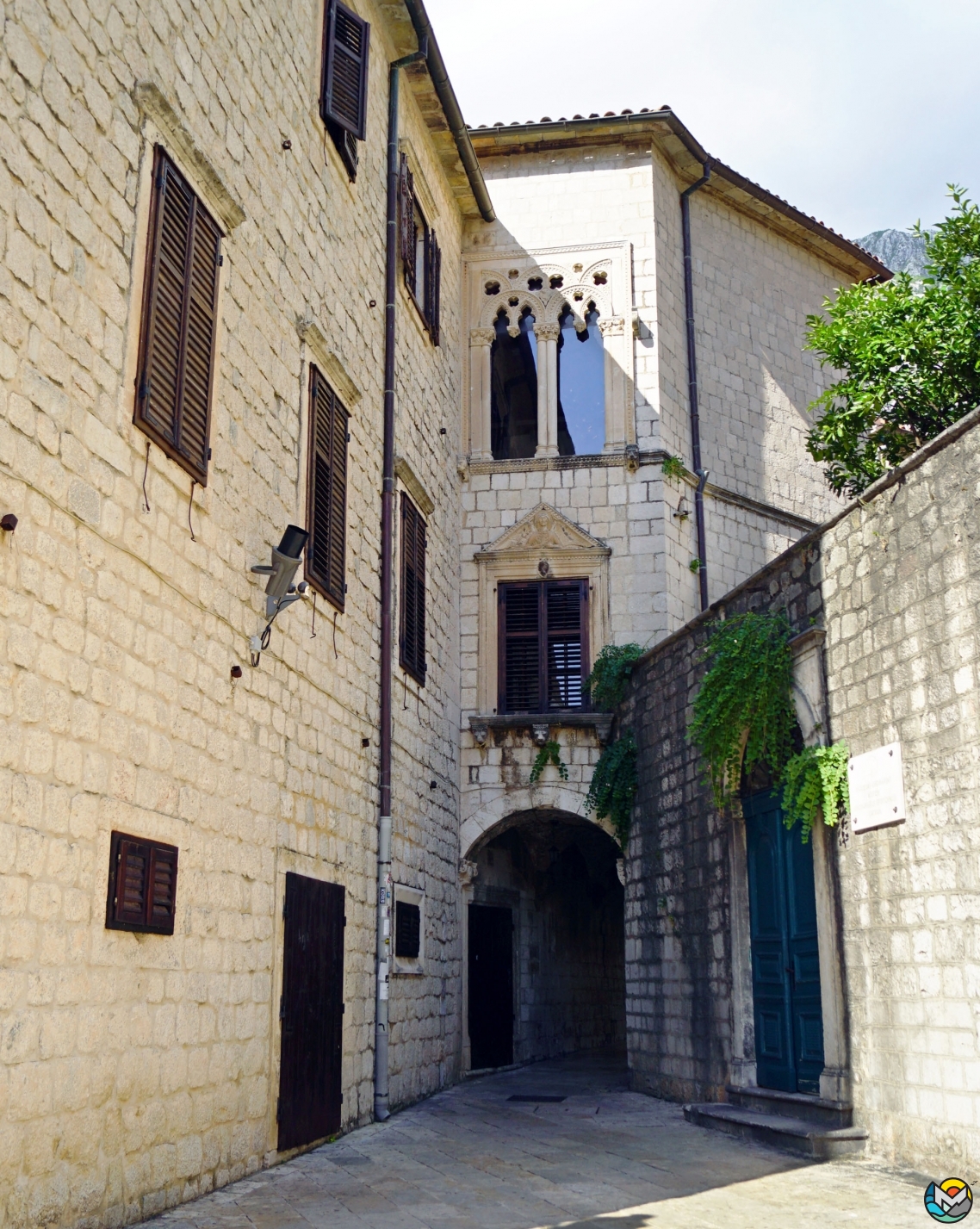
The palace of Drago family is one of the oldest and most famous palaces in Kotor. Its popularity is ensured by the unique location — the building is adjacent to the Cathedral of St. Tryphon — as well as beautiful and unusual facade.
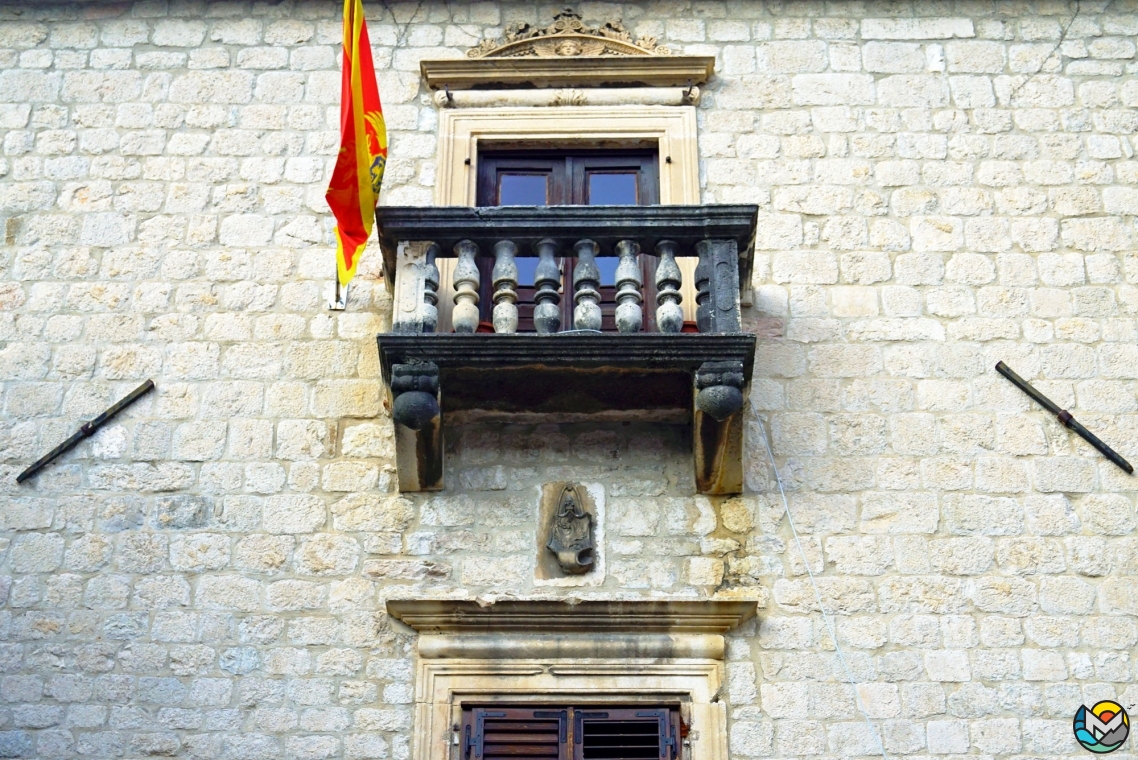
The palace was built in the 12th century, although seriously modified in the 14th and 15th centuries.
The house was badly damaged during the earthquakes of the 17th and 20th centuries, but every time the owners lovingly rebuilt the palace, and it is still in excellent condition nowadays.
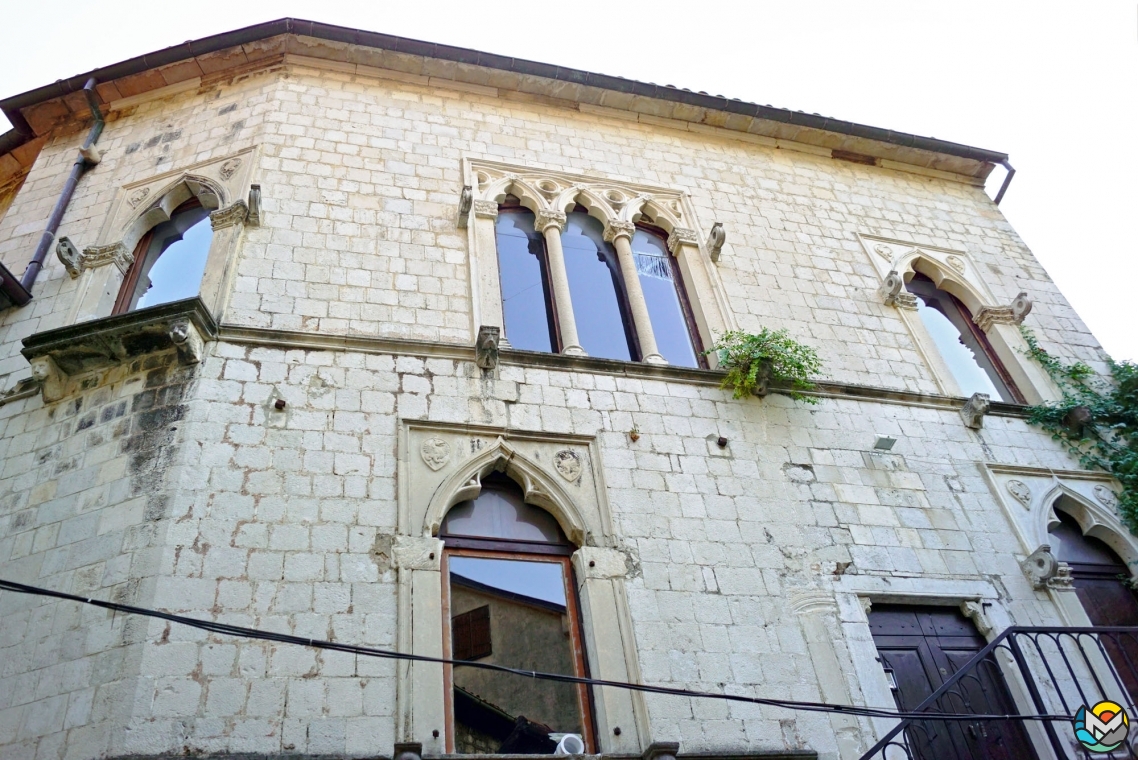
The palace has two wings, north and southwest, oriented towards the Cathedral. It is decorated in late Gothic style.
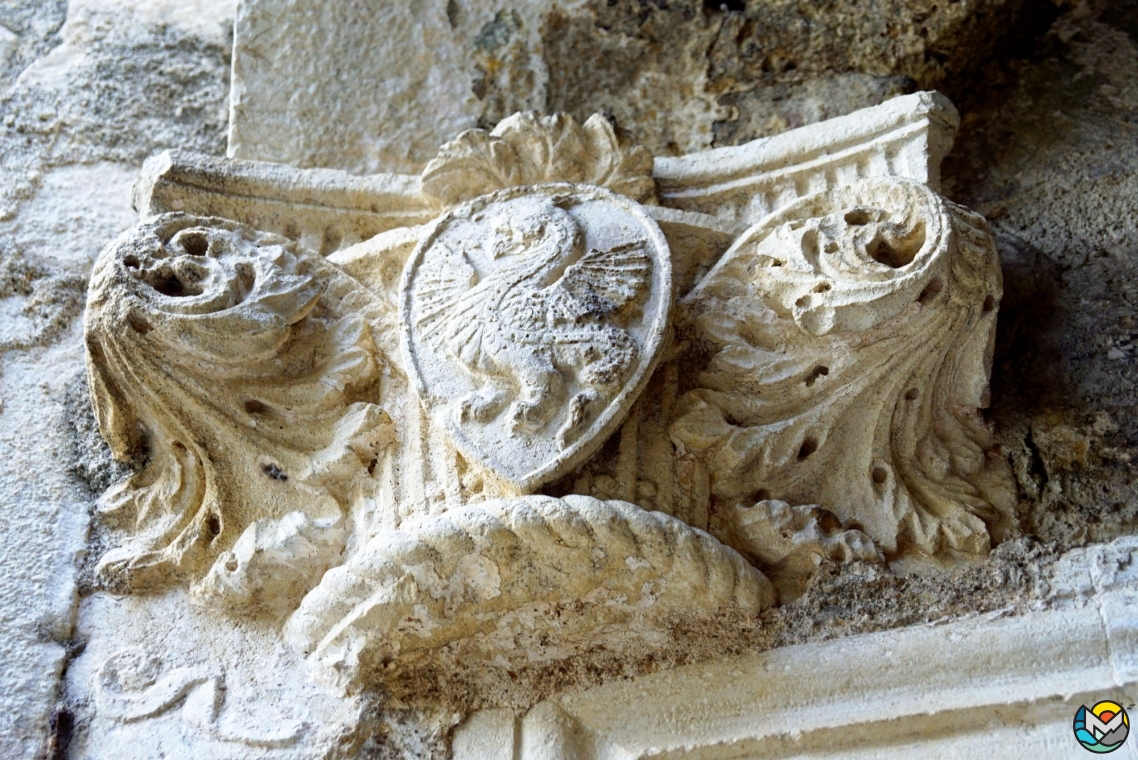
The coat of arms of the Drago family, with the majestic dragon at the center.
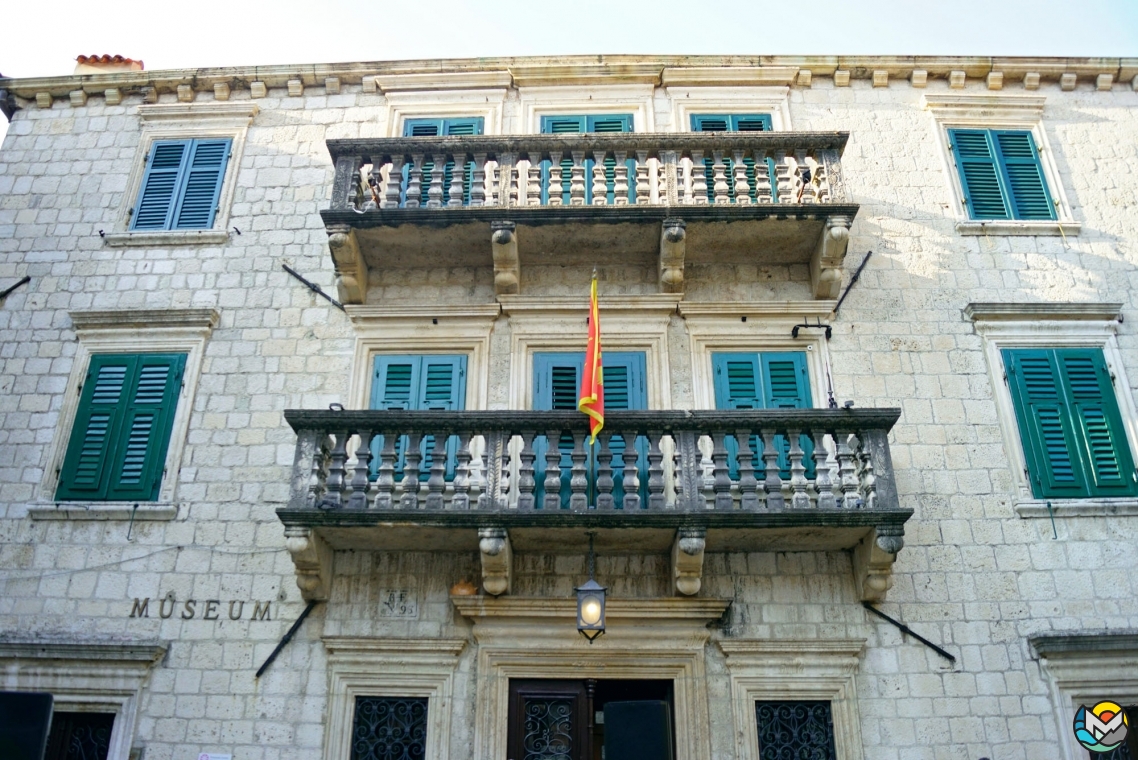
The Grgurina family house also has a significant place among Kotor architectural attractions. This building of the early 18th century is a beautiful example of classical Baroque, perfectly preserved to this day. And the Maritime Museum, with big collection of nautical history exhibits, has been located in the Grgurina Palace for many years.
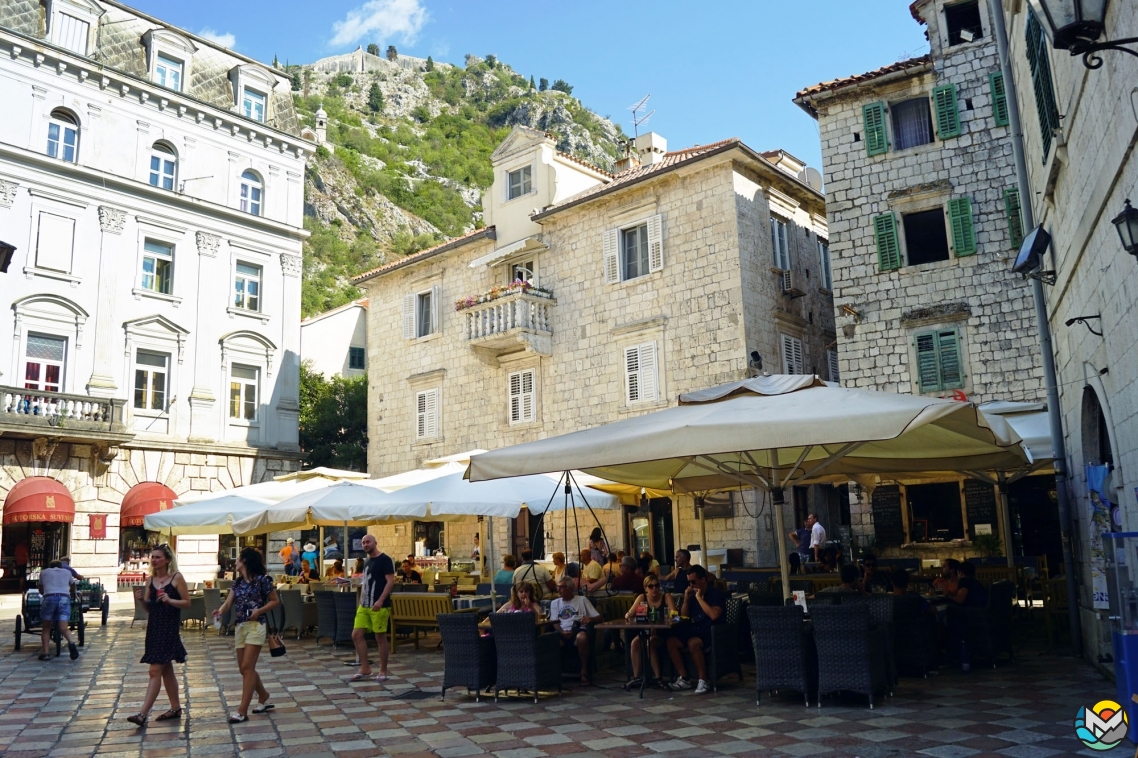
The Lombardic Palace was built at the same time as the Grgurina Palace.
Influential Montenegrin rulers from the Njegoš dynasty, Petar I and Petar II, stayed in the Lombardic mansion very often.
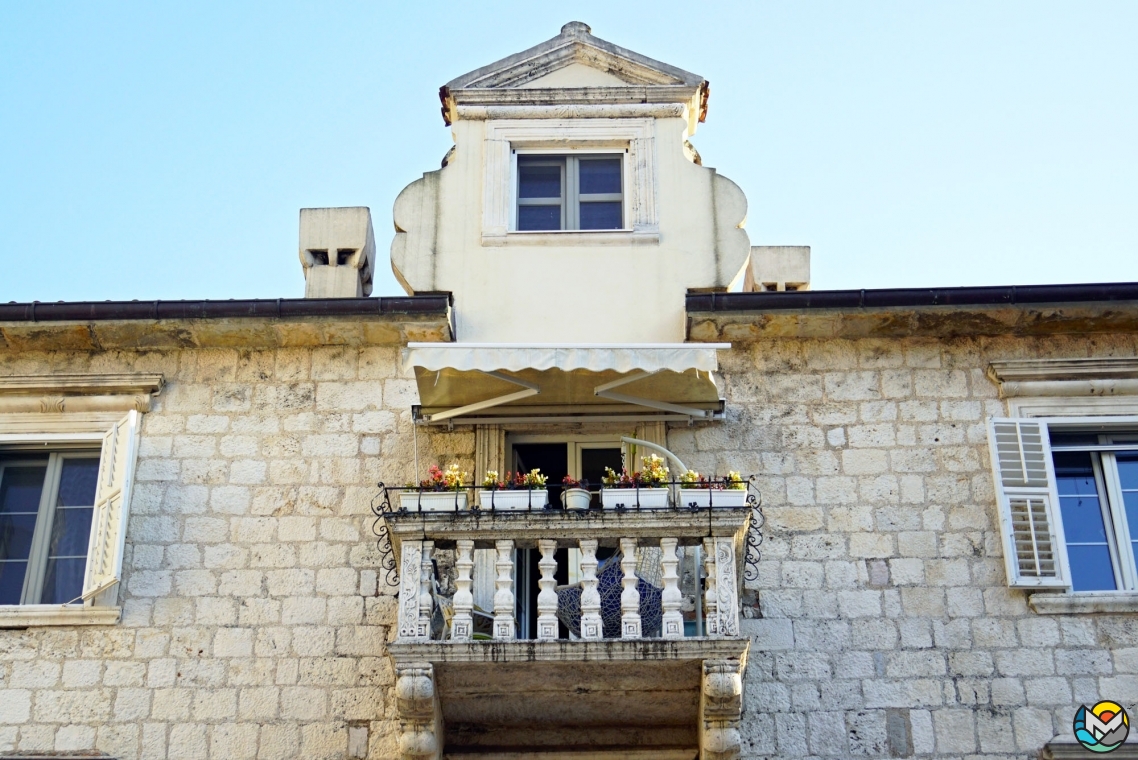
The palace consists of several parts. The central facade with small elegant balcony overlooks the square with the churches of St. Luke and St. Nicholas.
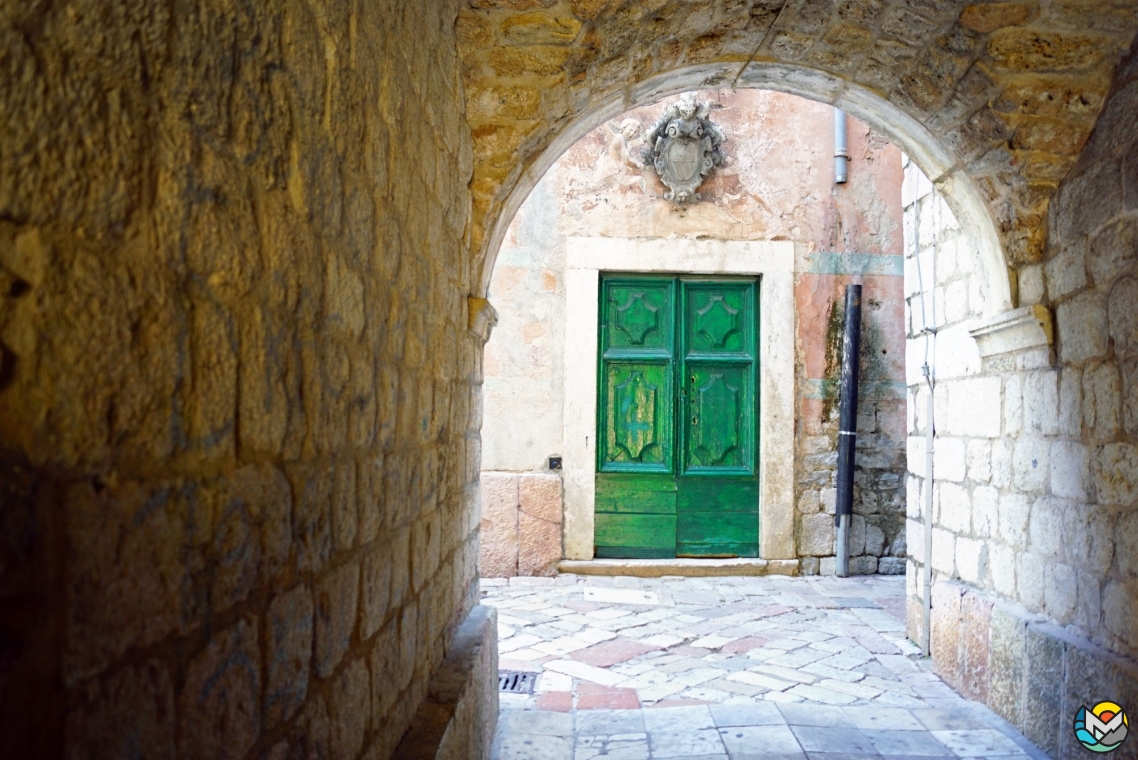
Fairytale buildings adorn almost every street, every square of the Old Town. And the Salad Square is no exception.
The Vrakjen family lived in this corner of Kotor since the 14th century, however, the palace that we can see today dates from a later period.
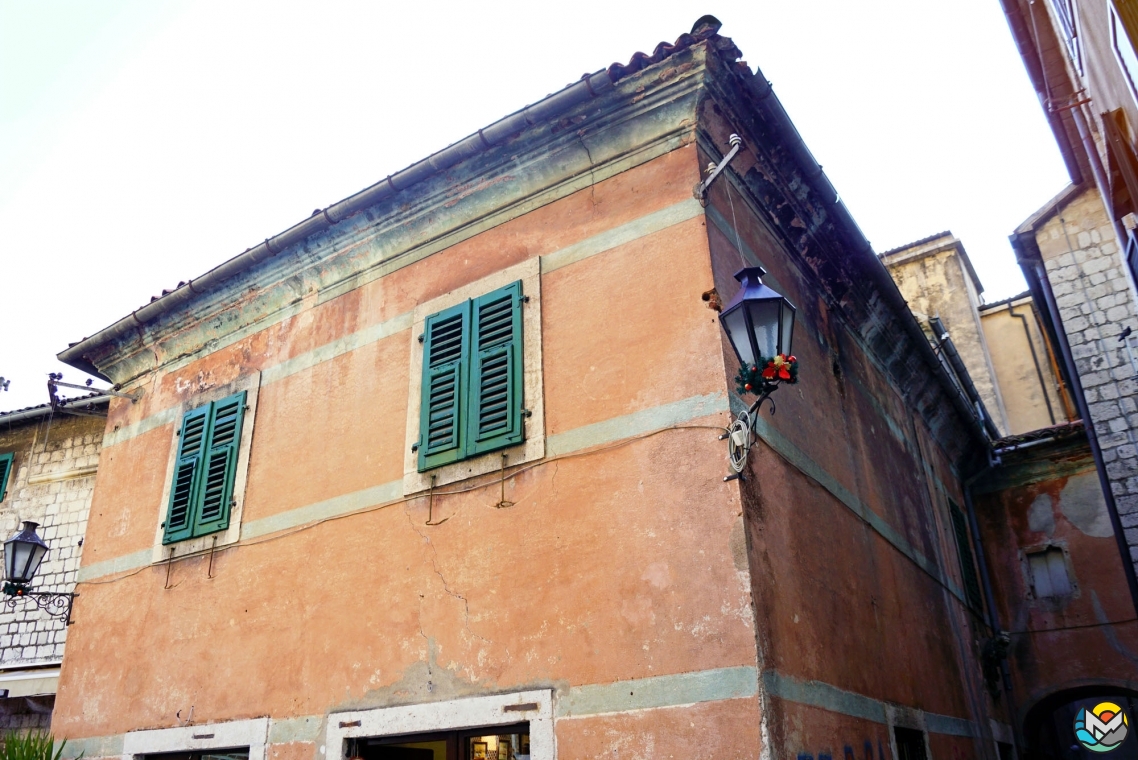
The stone house is painted delicate peach pink.
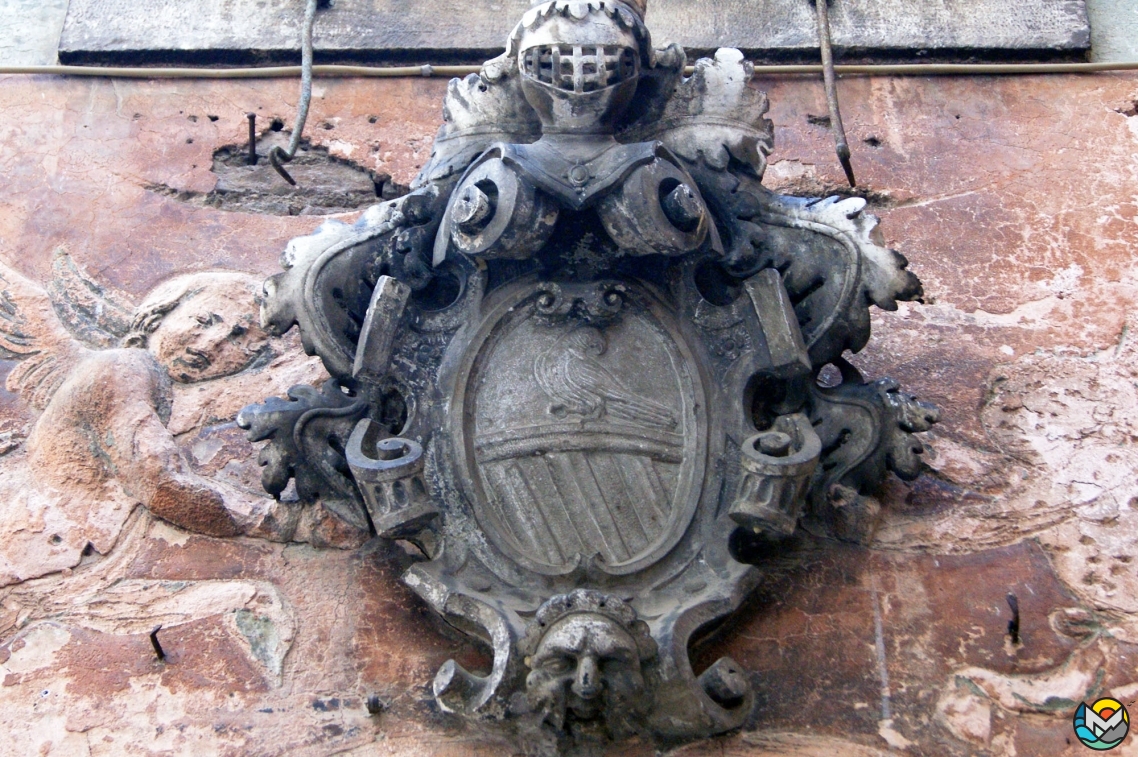
Above the main entrance there is the coat of arms crowned with a knight's headgear.
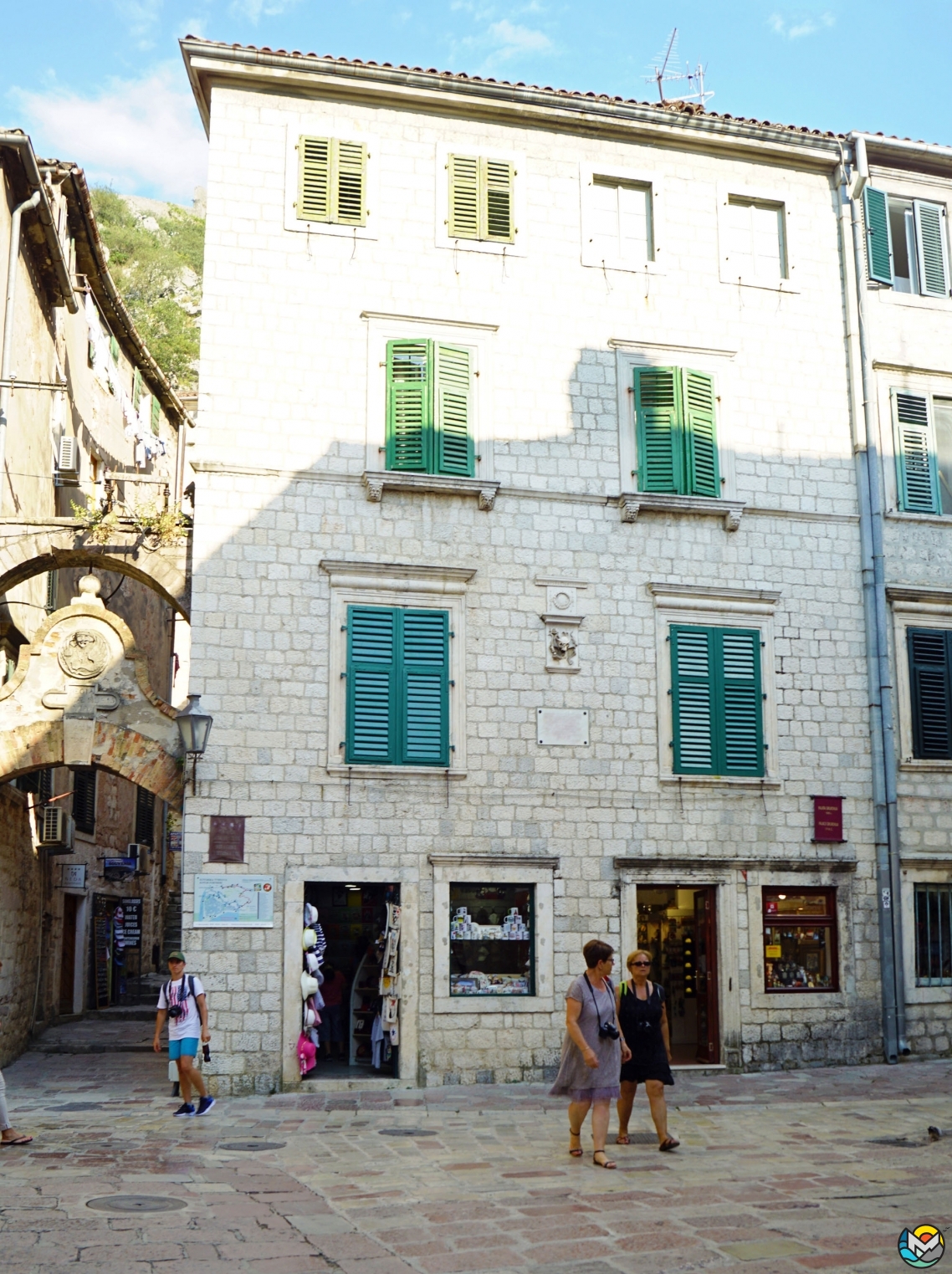
The Grubonja clan arrived to Kotor from the Croatian city of Zadar in the 15th century. Soon they built a four-story house near the North Gate and the Church of St. Mary of the River.
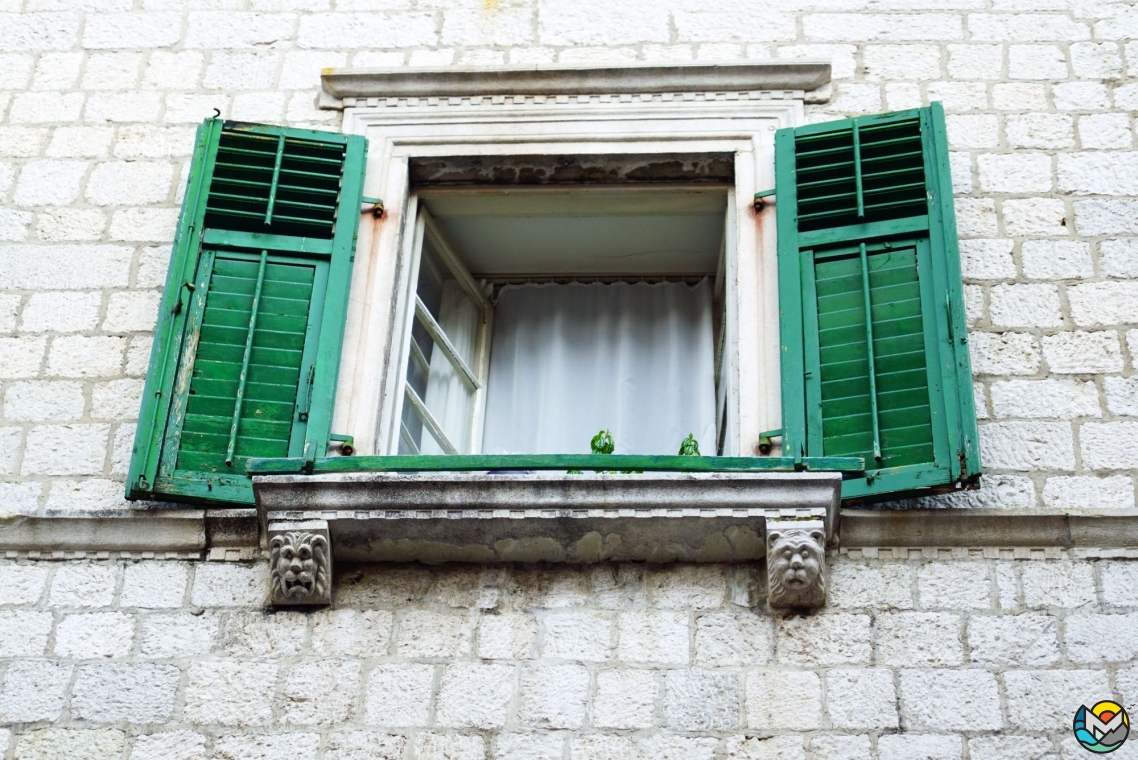
At first glance, the palace does not look very impressive, but its peculiarity is in the details. For example, the lion heads are supporting window sills.
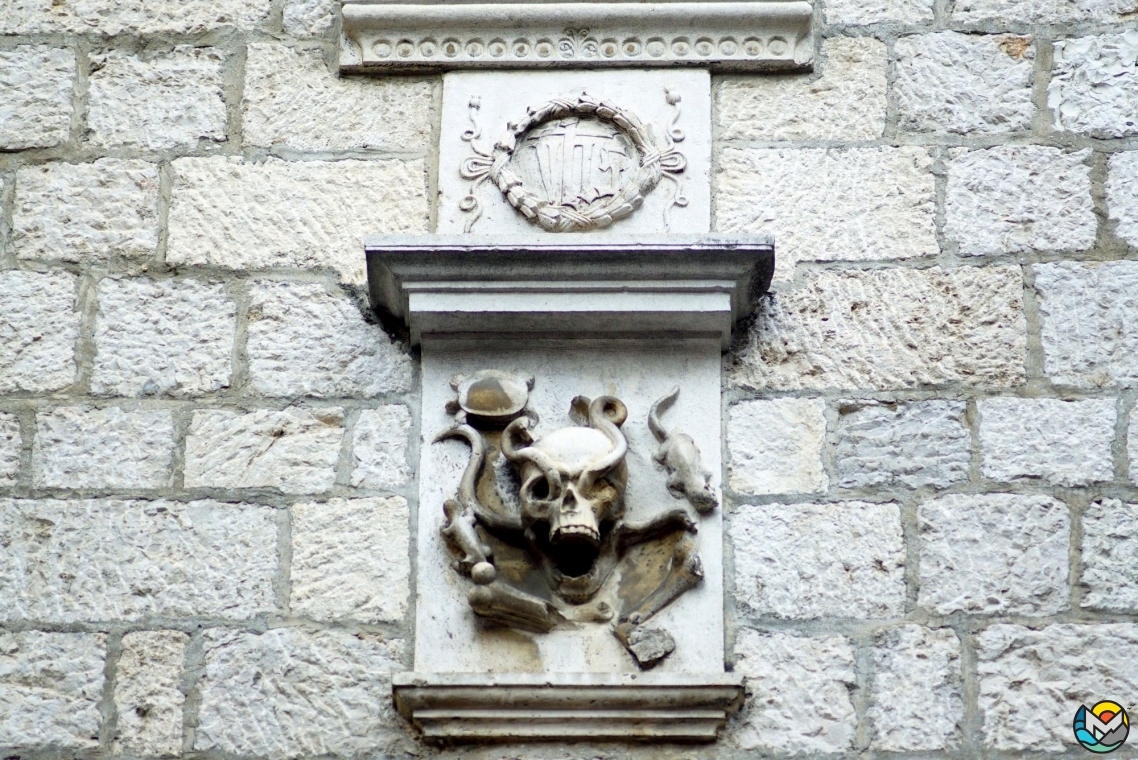
The most interesting element of the exterior is the coat of arms, it depicts a skull, a rat, a turtle and a snake.
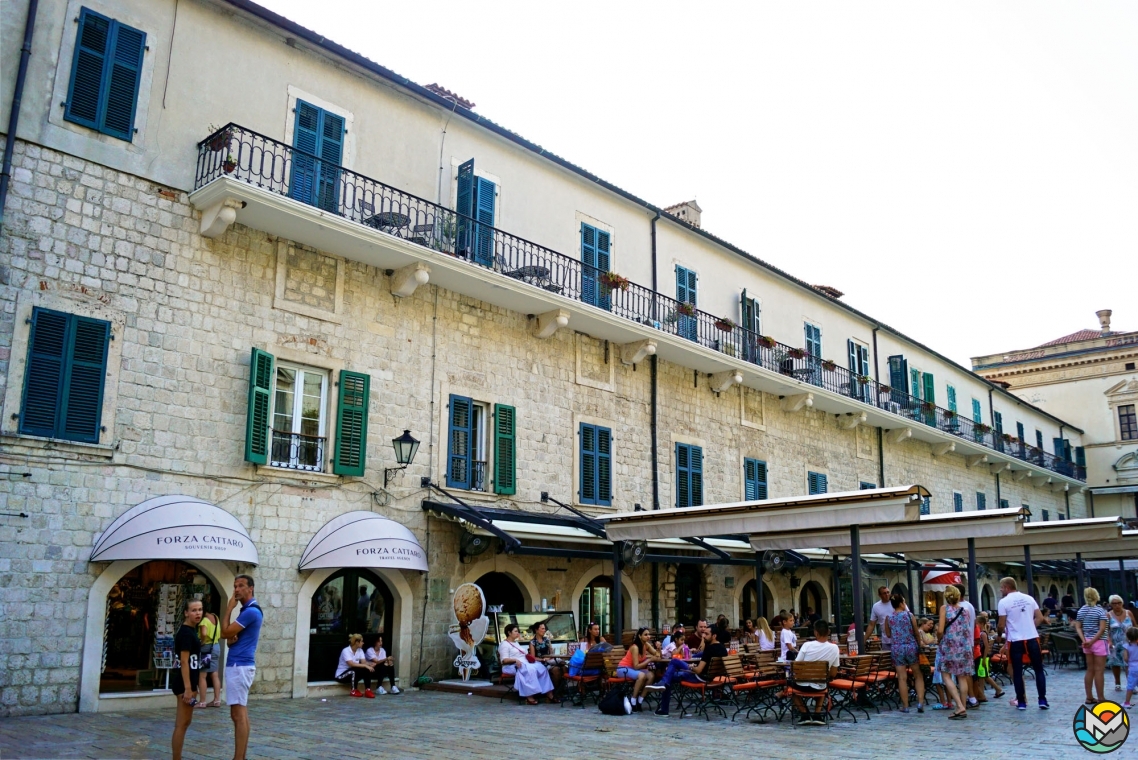
And last but not least, the Prince’s Palace, which occupies almost entirely one of the sides of the main city square — Square of Arms. It was a longtime home of the Venetian provost — hence the name.
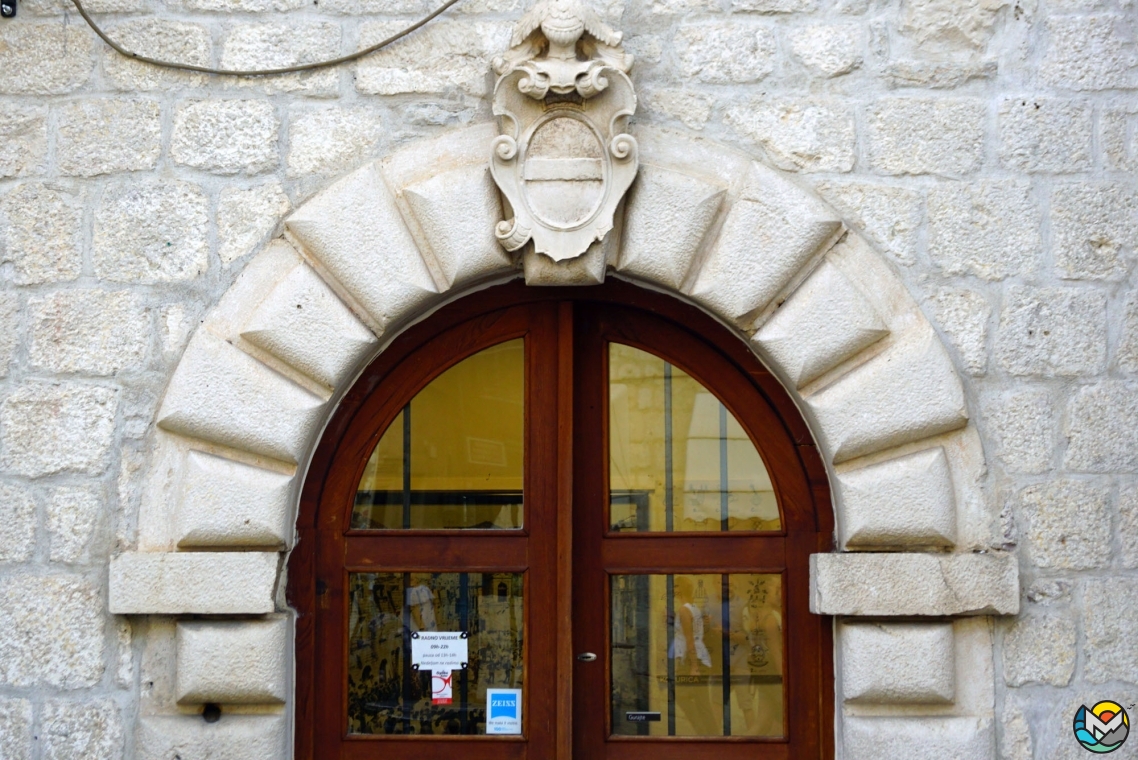
The rather modest but large palace has a rectangular shape, its length is 60 meters with a width of only 6 meters.
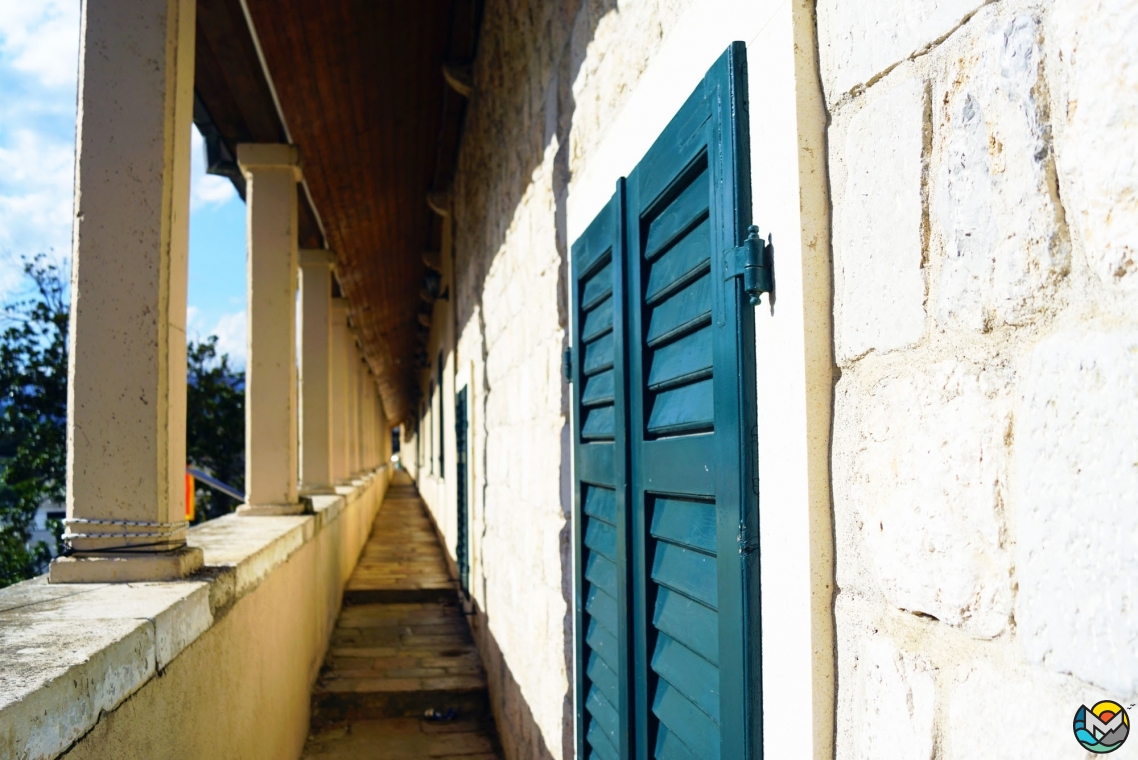
The palace was built after the 1667 earthquake destroyed the former provost residence on St.Tryphon Square. Over the centuries it also served as a military garrison and warehouse.
Nowadays, the lower level of the building is occupied by cute cafes and souvenir shops, and there is a hotel on the upper floor.

